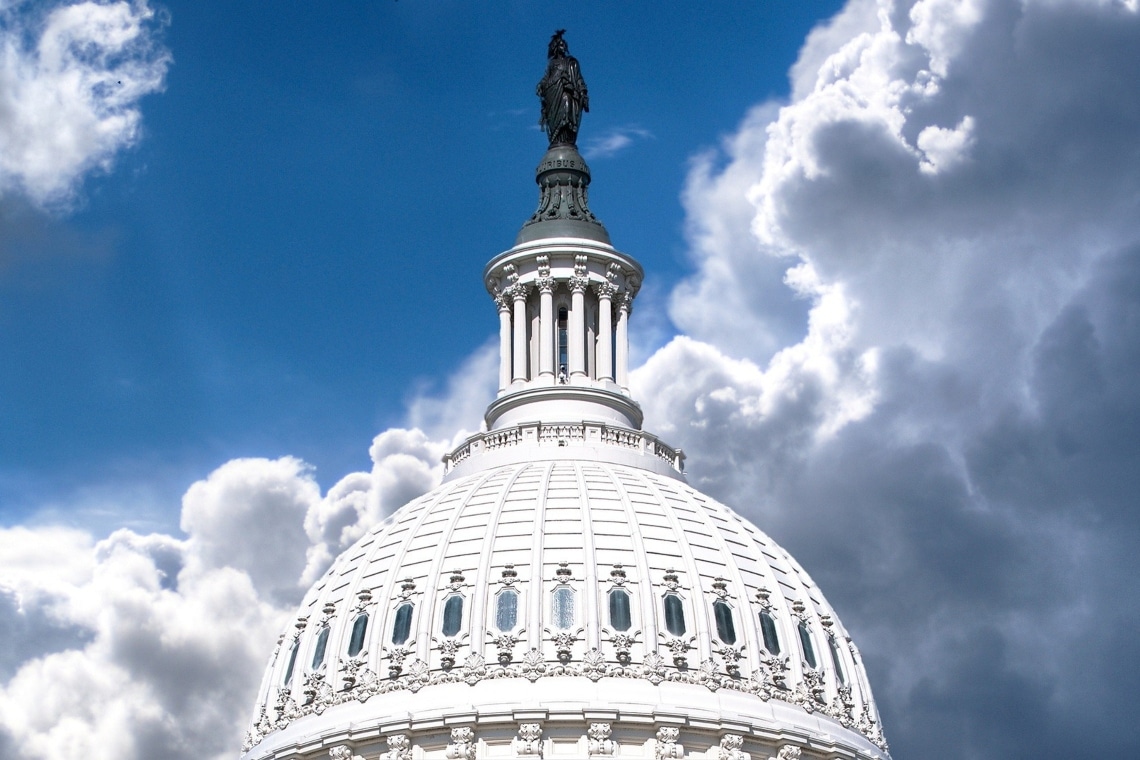Although the US Congress has not yet been able to pass crypto regulation, a new bill has been drafted that would like to equate DeFi with a bank.
They have been working on possible crypto regulation for more than three years now, and a bill has been drafted for more than a year that they nevertheless fail to pass.
Yet they keep making regulatory proposals that at present seem to have very little chance of being passed.
Summary
Crypto regulation: DeFi like a bank
The latest initiative in this regard is the proposed so-called Crypto-Asset National Security Enhancement Act, which is a bipartisan bill that would like to regulate DeFi.
Incidentally, it should be pointed out that true DeFi is decentralized, thus difficult to regulate since there should be no intermediaries on which to legally intervene.
The provisional text of the bill states that the goal would be to combat the rise in crime facilitated by cryptocurrencies, and block the paths to evasion and money laundering, for the sake of the national security of the United States.
The bill is being proposed by Democratic Senators Jack Reed and Mark Warner, along with Republican Senators Mike Rounds and Mitt Romney, but it is not yet known what actual chances it has of being passed.
If it will be anything like the bipartisan bill to regulate cryptocurrencies, introduced last year by Republican Senator Cynthia Lummis and Democratic Senator Kirsten Gillibrand, it seems unlikely to be passed anytime soon.
The idea contained in this latest bill is to require decentralized finance services (DeFi) to have the same compliance obligations as other financial companies, such as banks, particularly with regard to AML (anti-money laundering) regulations.
However, it is not clear how they could enforce them, since DeFi protocols are often anonymous.
What’s more, the senators proposing this bill admit that DeFi is often anonymous, but nonetheless they hypothesize sanctioning unlawful behavior. However, as to how they will identify the people to be sanctioned they probably do not yet know.
In the text they refer to “who controls the DeFi service,” perhaps without knowing that often no one controls it, or no one knows who controls it.
Campaigning
In light of these doubts, the question arises whether this is in fact merely a propaganda initiative.
Indeed, US senators are preparing for next year’s presidential election, and these kinds of initiatives with likely little real chance of actually coming to fruition have all the appearance of propaganda shoot-outs in the midst of campaigning.
What’s more, it would be much better to proceed first with the passage of the crypto regulation bill that has been stalled for a year, before proceeding to launch other bills that seem even less likely to succeed.
International competition
Indeed, it is worth noting that in this respect the US is facing stiff competition even from the European Union, which is certainly not known for its ability to follow and ride innovation.
Around the world there are already countries that are becoming important international crypto hubs also and especially thanks to clear crypto regulation, primarily Switzerland and UAE (Dubai).
Add to this the fact that the EU also has clear crypto regulation, and perhaps even China is in the process of drafting one, and it remains rather strange that in the US policy fails to issue clear and specific regulation on cryptocurrencies and crypto markets.
In other words right now they seem to be losing the competition to attract crypto companies that can, for example, create new jobs.
If we add to this the enormous confusion created lately by the SEC, it is easy to see how much the US is in danger of losing its financial leadership role globally.
This is all the more strange precisely because an election campaign is already underway, in which the failure to defend national interests could weigh very negatively on electoral performance.
Crypto regulation: control of DeFi protocols like a bank?
In the draft text of the Crypto-Asset National Security Enhancement Act, senators write that the obligation and responsibility for compliance with AML requirements for DeFi protocols will fall to anyone who controls a DeFi protocol, or makes an application available to use it. In the latter case it refers to those centralized entities that provide end users with interfaces to use it.
They also add that if no one controls the protocol, those who have invested more than $25 million in it will be held liable. This practically excludes the vast majority of DeFi protocols from legal obligations.
In other words, this bill would not regulate DeFi, only the activities of any centralized intermediaries or large investors.
It is very difficult to think that this would be sufficient to combat the rise in crime facilitated by cryptocurrencies, and to bar the way to evasion and money laundering, for the national security of the United States.




